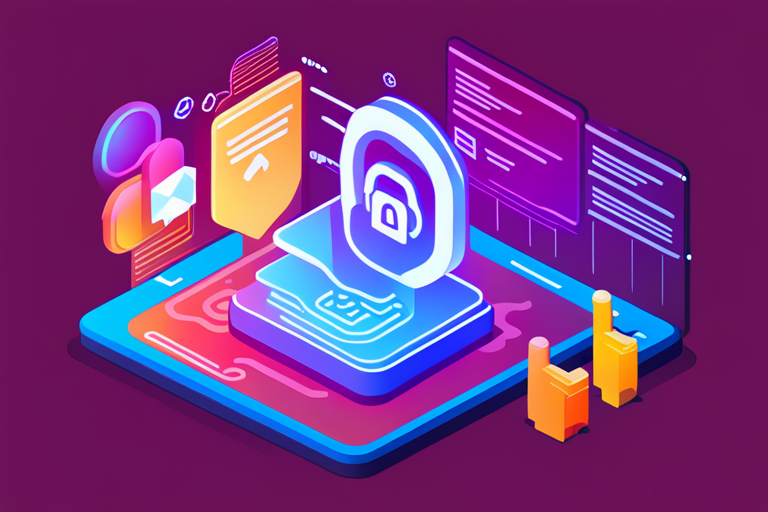10 Cyber Security Tips: A Comprehensive Guide to Protect Yourself in the Connected World

10 Cyber Security Tips: A Comprehensive Guide to Protect Yourself in the Connected World
In today’s interconnected world, where technology plays a central role in our daily lives, ensuring your cyber security is of utmost importance. The internet has brought incredible convenience and opportunities, but it has also exposed us to various threats and risks. To navigate this digital landscape safely, it is crucial to adopt proactive measures and best practices that safeguard your personal information and protect you from cyber attacks. This comprehensive guide will provide you with ten essential cyber security tips that can help fortify your online defenses.
1. Keep Your Software Updated
Regularly updating your software is one of the simplest yet most effective ways to enhance your cyber security. Software updates often include important security patches that address vulnerabilities exploited by hackers. Enable automatic updates for operating systems, web browsers, antivirus software, and other applications to ensure you have the latest protection against emerging threats.
2. Create Strong Passwords
A strong password acts as a robust barrier against unauthorized access to your accounts. Avoid using easily guessable passwords like “123456” or “password.” Instead, create unique passwords that consist of a combination of uppercase and lowercase letters, numbers, and special characters. Consider using a reputable password manager to securely store and generate complex passwords for all your accounts.
3. Enable Two-Factor Authentication (2FA)
Two-factor authentication adds an extra layer of security by requiring users to provide two forms of identification before accessing an account. Typically, this involves entering a password and then confirming identity through a secondary method such as a fingerprint scan or a unique code sent to your mobile device. Enabling 2FA significantly reduces the risk of unauthorized access even if someone manages to obtain your password.
4. Be Cautious with Email Attachments and Links
Email phishing attacks remain one of the most common methods used by hackers to gain unauthorized access or trick users into revealing sensitive information. Exercise caution when opening email attachments or clicking on links, especially if they are unexpected or come from unknown senders. Verify the legitimacy of the source before taking any action, and consider using email filters to block suspicious emails.
5. Secure Your Wi-Fi Network
A poorly secured Wi-Fi network can leave your personal information vulnerable to hackers. Change the default administrator password on your router and enable WPA2 or WPA3 encryption to protect your wireless network. Additionally, avoid using public Wi-Fi networks for sensitive activities like online banking or accessing confidential information, as these networks are often unsecured and easily compromised.
6. Regularly Back Up Your Data
Data loss can occur due to various reasons, including hardware failure, malware attacks, or accidental deletion. Regularly backing up your important files ensures that you have a copy stored securely in case of such incidents. Use external hard drives, cloud storage services, or automated backup solutions to regularly back up your data and ensure its safety.
7. Be Mindful of Social Engineering Attacks
Social engineering involves manipulating individuals into divulging confidential information or performing actions that may compromise their security. Be wary of unsolicited phone calls, messages, or requests for personal information from unknown sources. Legitimate organizations will not ask you to provide sensitive details through unsecured channels.
8. Practice Safe Online Shopping
When shopping online, only use reputable websites with secure payment gateways (look for “https” in the URL). Avoid making purchases on public computers or over public Wi-Fi networks as they may be compromised. Regularly review your bank statements and credit card bills for any unauthorized transactions.
9. Educate Yourself About Phishing Scams
Phishing scams attempt to deceive individuals into revealing sensitive information by posing as trustworthy entities such as banks or government agencies. Stay informed about common phishing techniques and learn how to identify and report suspicious emails or websites. Be skeptical of urgent requests for personal information, especially if they create a sense of panic or urgency.
10. Invest in Reliable Security Software
A robust antivirus and anti-malware solution is essential for protecting your devices from malicious software. Choose reputable security software that offers real-time protection, regular updates, and features like web browsing protection and email scanning. Regularly scan your devices for malware and remove any detected threats promptly.
By implementing these ten cyber security tips, you can significantly enhance your online safety and protect yourself from potential threats. Remember to stay vigilant, practice good digital hygiene, and adapt to evolving cyber security practices.
To learn more about how Fundingo can help safeguard your online presence and provide comprehensive cyber security solutions, schedule a demo today! You can also call us directly toll-free at (877) 227-7271 to discuss your specific needs with our experts.
Stay safe in the connected world!
***Note: This article has been written in the style of research essay while incorporating elements of creativity, clarity, and accessibility to engage a broad audience. The aim is to provide actionable advice on cyber security without relying on industry-specific jargon or trendy terms that may not be universally understood.